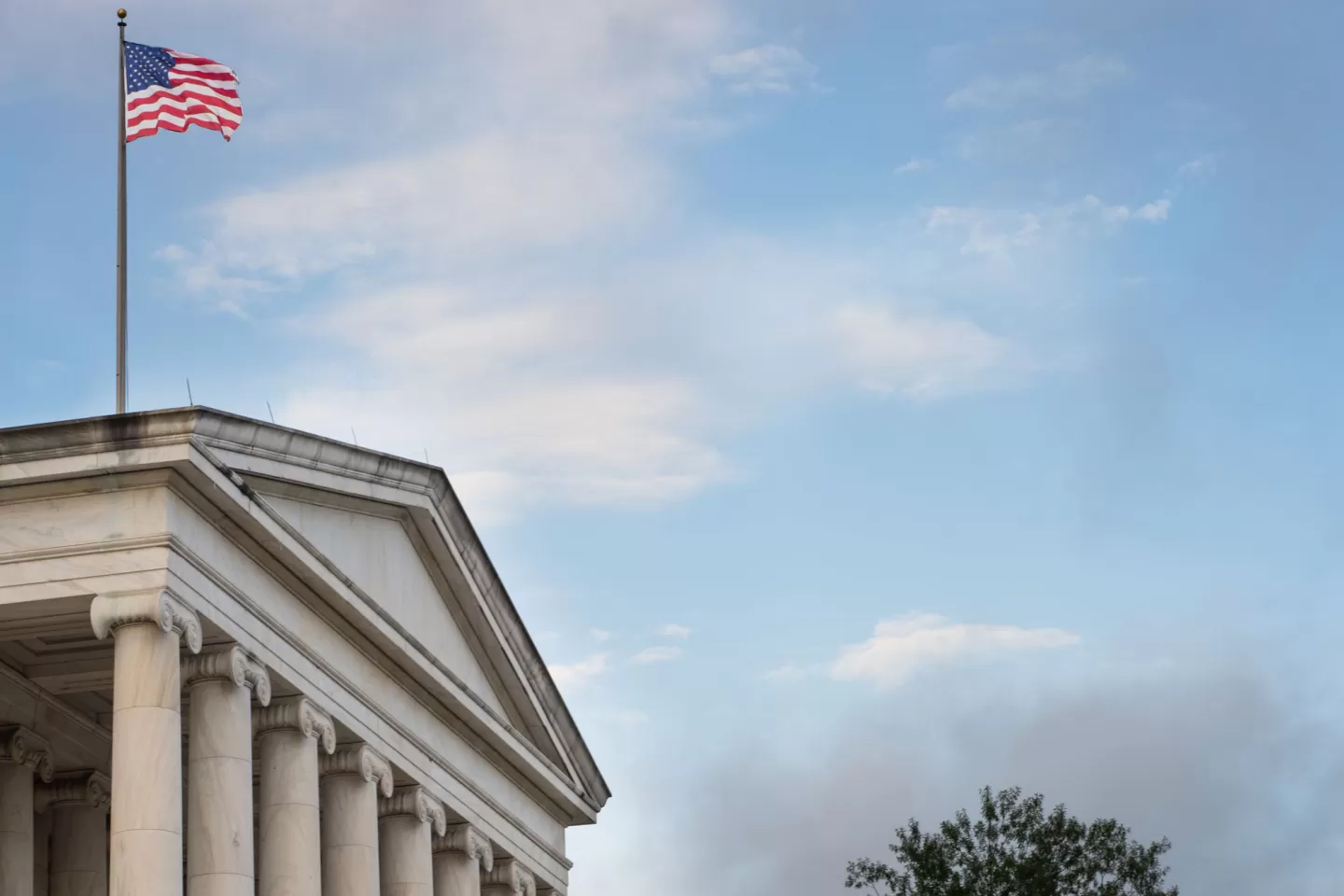Advice for the House Ways and Means Committee as it convenes a hearing this afternoon investigating the nexus between antisemitism, tax-exempt universities, and terror financing.
Right after the October 7 attacks by Hamas in Israel, Missouri Congressman Jason Smith issued a statement condemning them and questioning “the academic or charitable missions” of American student groups and universities supporting them. Not surprisingly, since Mr. Smith is its chair, the House of Representatives’ Ways and Means Committee, which has jurisdiction over tax policies affecting nonprofit groups, is holding a hearing this afternoon to “investigate the nexus between antisemitism, tax-exempt groups, and terror financing.”
As I have written elsewhere, the Committee will have its work cut out for it. One reason is that some of the most-prominent groups leading demonstrations on behalf of Hamas, such as Students for Justice in Palestine (SJP) and American Muslims for Palestine, are not tax-exempt at all. Instead, they receive support through other organizations known as “fiscal sponsors” or directly from donors who are not concerned about getting a tax break for their contributions.
In addition, American law has traditionally given charities and their supporters considerable freedom in addressing controversial causes. Their activities are protected by the First Amendment guarantees of free speech and freedom of assembly, unless the government can show a compelling reason to restrict them. As a result, even if it finds a “nexus,” the Ways and Means Committee will have to tread carefully to produce a constitutionally acceptable way of breaking it.
However, there are several steps, building on well-established precedents, the Committee could consider.
One would be to define more clearly what a “fiscal sponsor” is allowed to do. Currently, any “public charity” under § 501(c)(3) of the Internal Revenue Code can be a “fiscal sponsor” and offer a tax deduction to a donor who contributes to an organization that is not tax-exempt. There can be good reasons for this, such as if a donor wants to support a group that is new and has not yet received its tax-exempt status from the Internal Revenue Service (IRS). But when the group has been operating for a while and could reasonably have been expected to obtain a tax-exempt status of its own (or if it had been denied one), having a “fiscal sponsor” looks more like a way of evading tax laws than a temporary expedient. (The national chapter of SJP has been operating since 2010 and some of its campus chapters even longer.) The Ways and Means Committee should examine the practice of fiscal sponsorship (which has been used for a variety of causes, not just supporting terrorist groups) and propose appropriate restrictions, such as limiting its duration.
“Fiscal sponsors” are also expected to take responsibility for ensuring that the donations they accept on behalf of another organization are spent as intended. For example, someone who wanted to support SJP is directed to make a gift to the WESPAC Foundation, a public charity in White Plains, N.Y., which serves as its “fiscal sponsor.” But WESPAC is not legally required to report publicly what it does with the money, except in functional categories (such as how much it spends on salaries, conferences, and the like). What portion of the $1 million it received in 2021 went to SJP does not have to be disclosed. (Nor do the names of the donors, except privately to the IRS.) Since grantmaking foundations, like Ford or Rockefeller, are required to report the names of and amounts they give to their grantees, the Ways and Means Committee should consider requiring other kinds of grantmaking organizations, including “fiscal sponsors,” to do likewise.
In a 2010 decision, Holder v. Humanitarian Law Project, the U.S. Supreme Court upheld the constitutionality of a law that prohibited Americans from making donations to groups on the State Department’s “foreign terrorist organization” list (which includes Hamas and Hezbollah), even if the gift was restricted to social services and other peaceful activities these groups sometimes perform. But writing for the majority, Chief Justice John Roberts emphasized that the law upheld in the ruling applied only to international gifts. Support for U.S.-based organizations that worked on behalf of terrorist groups on the State Department’s list continues to be legal. Closing this loophole would require legislation (and undoubtedly face another court challenge), but considering the Holder decision, the Committee on Ways and Means should examine whether such an infringement on First Amendment rights is also justifiable.
In any case, there is a difference between exercising free speech and receiving a tax-exemption. Congress and the courts have long wrestled with how to differentiate “education” (which has long been considered a charitable activity) from “propaganda” (which has not). Tax policy has sought to benefit organizations providing education, but avoid helping those engaged in propaganda, defined as the intentional dissemination of biases and misinformation in an inflammatory way. In making that assessment, the IRS is supposed to focus not on the content of a group’s message, but rather on how it is presented.
This is a difficult judgment to make and can lend itself to the politicization of tax policy (as it has in the past). But the Ways and Means Committee has the authority to review how the IRS has been applying this distinction to groups—especially those which have received tax-exemption—that are championing terrorist causes.
Universities and colleges also deserve scrutiny. As public-serving groups, they are generally bound by the First Amendment, though they can impose some limits, such as on the “time, place, and manner” of speech. Many also have adopted rules aimed at preventing various kinds of “hate speech” and protecting “civility.” How well these organizations have lived up to their obligations (and their own rules) in the aftermath of the October 7 attacks could bear on their tax-exemptions as organizations with “charitable or academic missions.”
“[C]harities that encourage violence and cheer on extremism are not contributing to society with any of the purposes the IRS allows,” nonprofit law expert Elizabeth Schmidt of the University of Massachusetts-Amherst wrote last Spring. Although she was looking at right-wing extremism, the Ways and Means Committee—with its jurisdiction over the IRS—should consider if her conclusion applies just as well to groups defending terrorism and calling for the destruction of Israel.
***
Portions of this article previously appeared in The Wall Street Journal.


